It's easy to take for granted the 90-cent Kopi-O you buy from the coffee shop downstairs from your house every morning before work.
Or the daily Kopi-C fix you *need* to have that you grab on your way back from lunch, without which you will not be able to function for the rest of the afternoon.
What most of us coffee drinkers might not realise, however, is just how uniquely Singaporean coffee from hawker centres and coffee shops actually is — and involves a completely Singaporean process that goes all the way to the beans that are used.
Not only that: this uniquely Singaporean coffee industry we have is at risk of extinction, because it's ageing.
We gained this fascinating knowledge courtesy of a video documentary uploaded to a Facebook page called "Our Grandfather Story", a university undergraduate project aimed at telling visual stories linked to Singapore's heritage and traditions.
The group of students visited four businesses at different stages of the coffee-making process, to bring us a breakdown of how it's done, right here in Singapore.
The result: five minutes of caffeinated bliss.
In case you haven't the time to savour it in full, here's the process in screengrabs:
First, some good quality beans must be chosen.
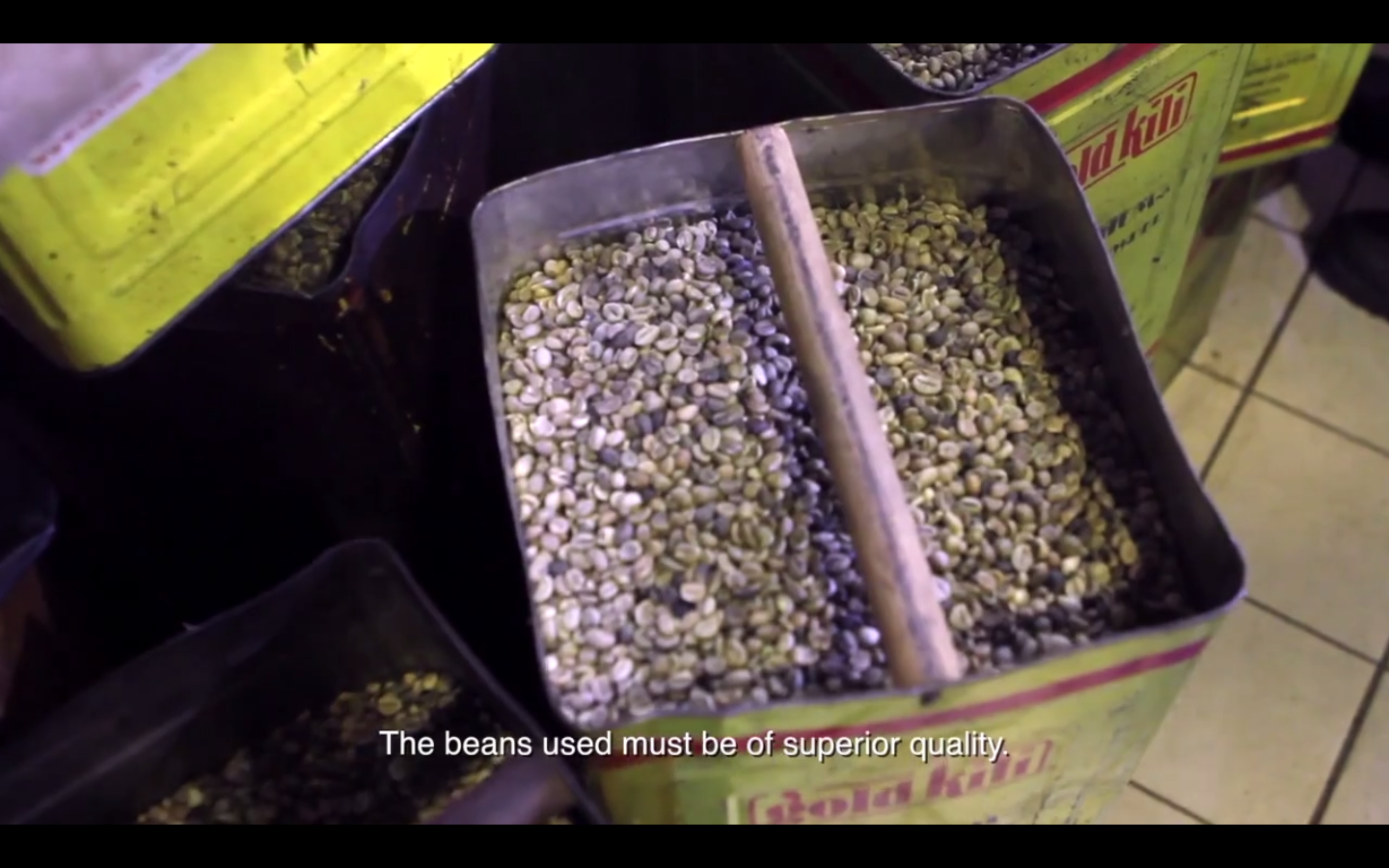 Screenshot from video
Screenshot from video
They are then poured together to be roasted over charcoal; the process takes 40 minutes in total.
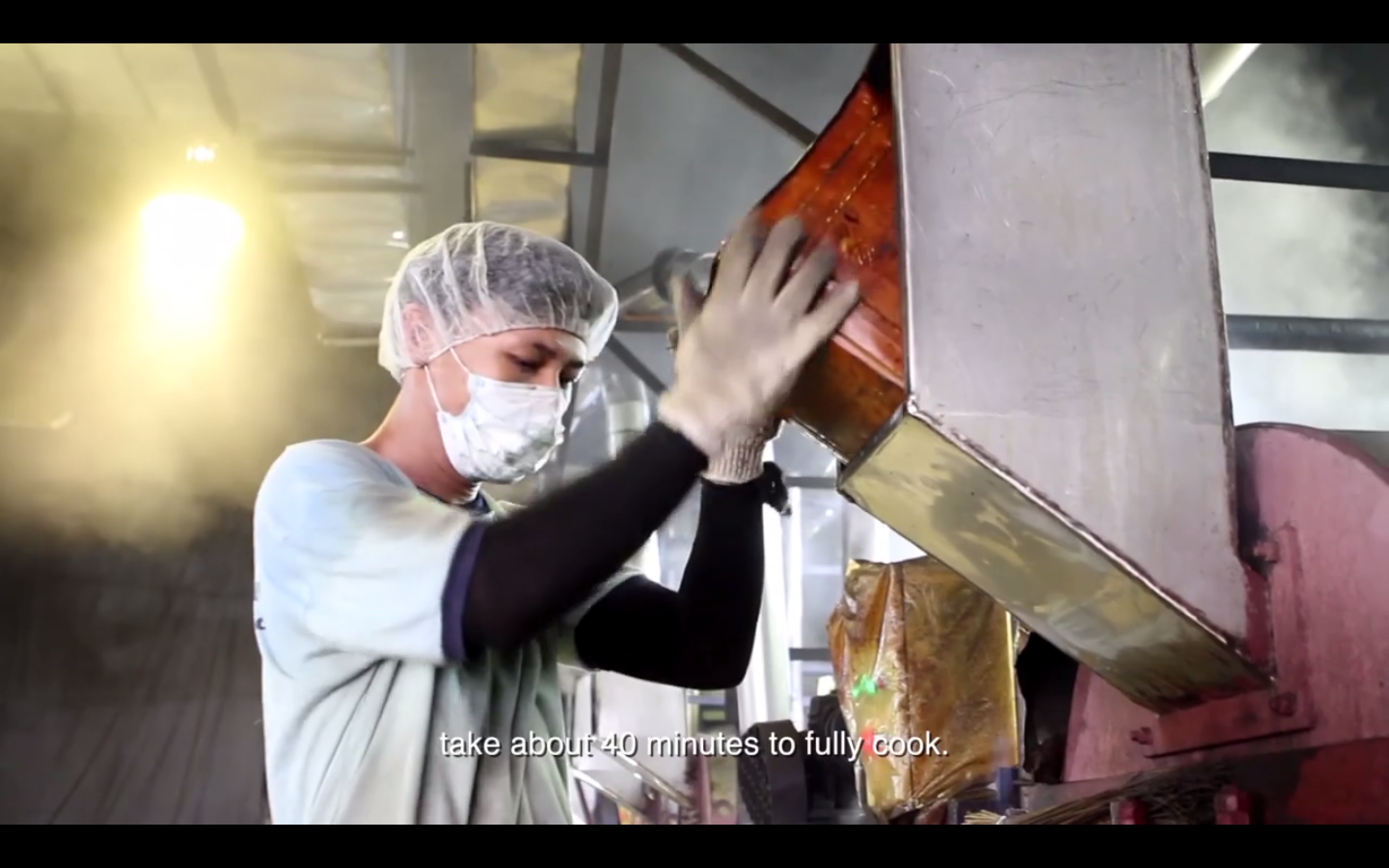 Screenshot from video
Screenshot from video
They're roasted at temperatures of between 220 and 230 degrees Celsius (depending on how much moisture is in the beans).
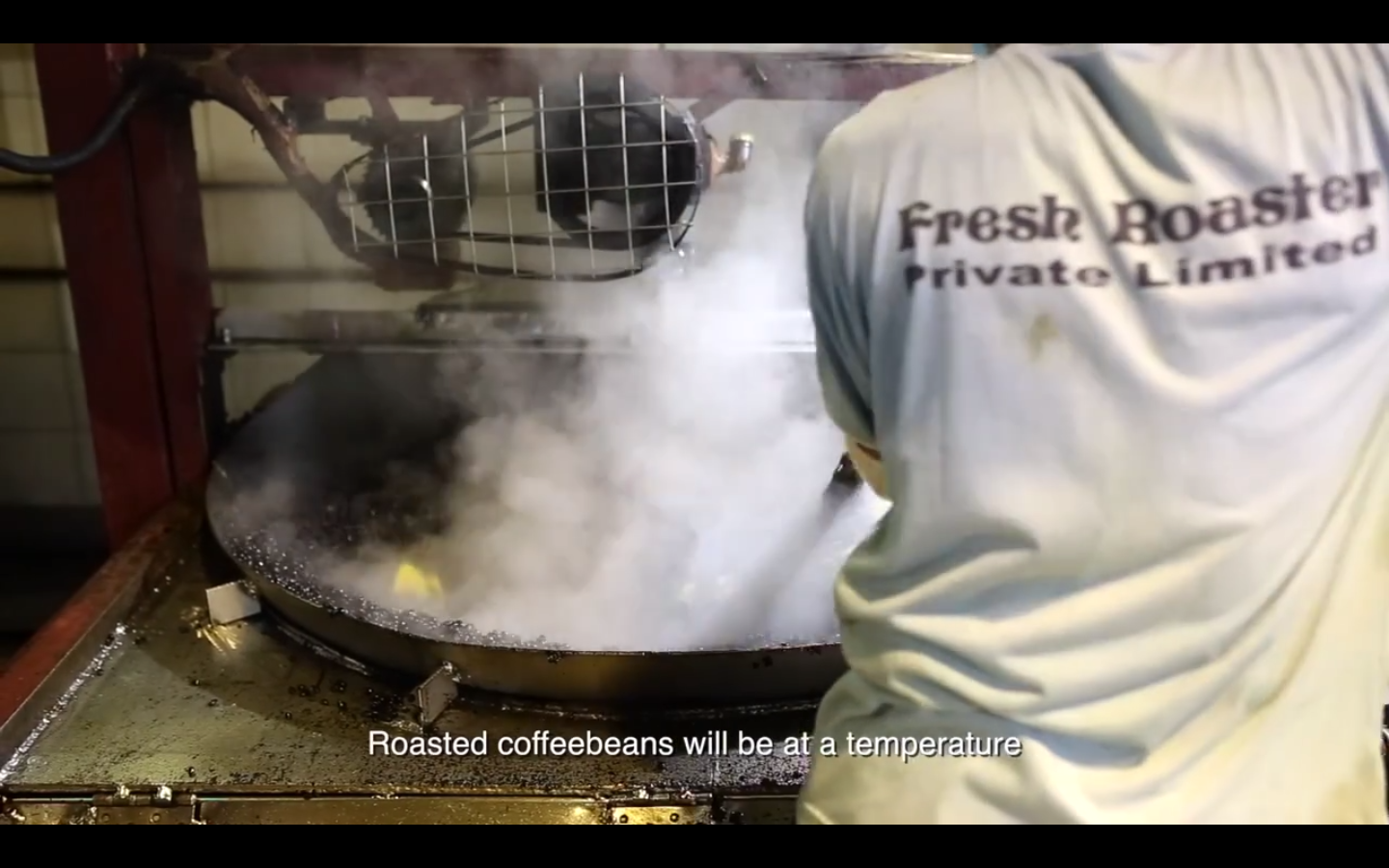 Screenshot from video
Screenshot from video
Sugar is melted into a liquid in a wok, and the coffee beans are stirred in until they are coated with sugar. This also happens at between 220 and 230 degrees Celsius.
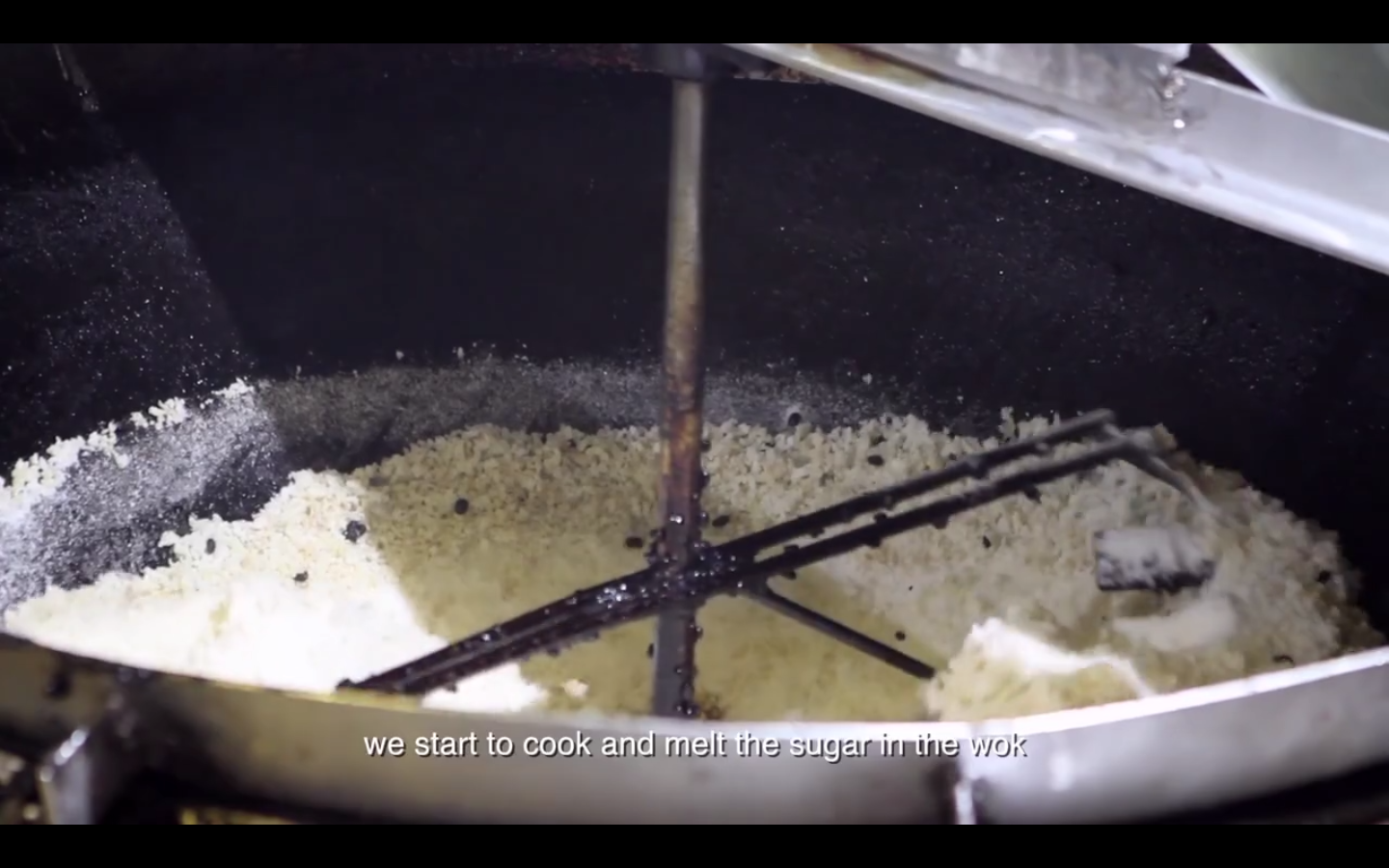 Screenshot from video
Screenshot from video
Then, the beans are loaded onto trays and cooled with fans, while workers hit and separate the beans to make sure they don't stick together.
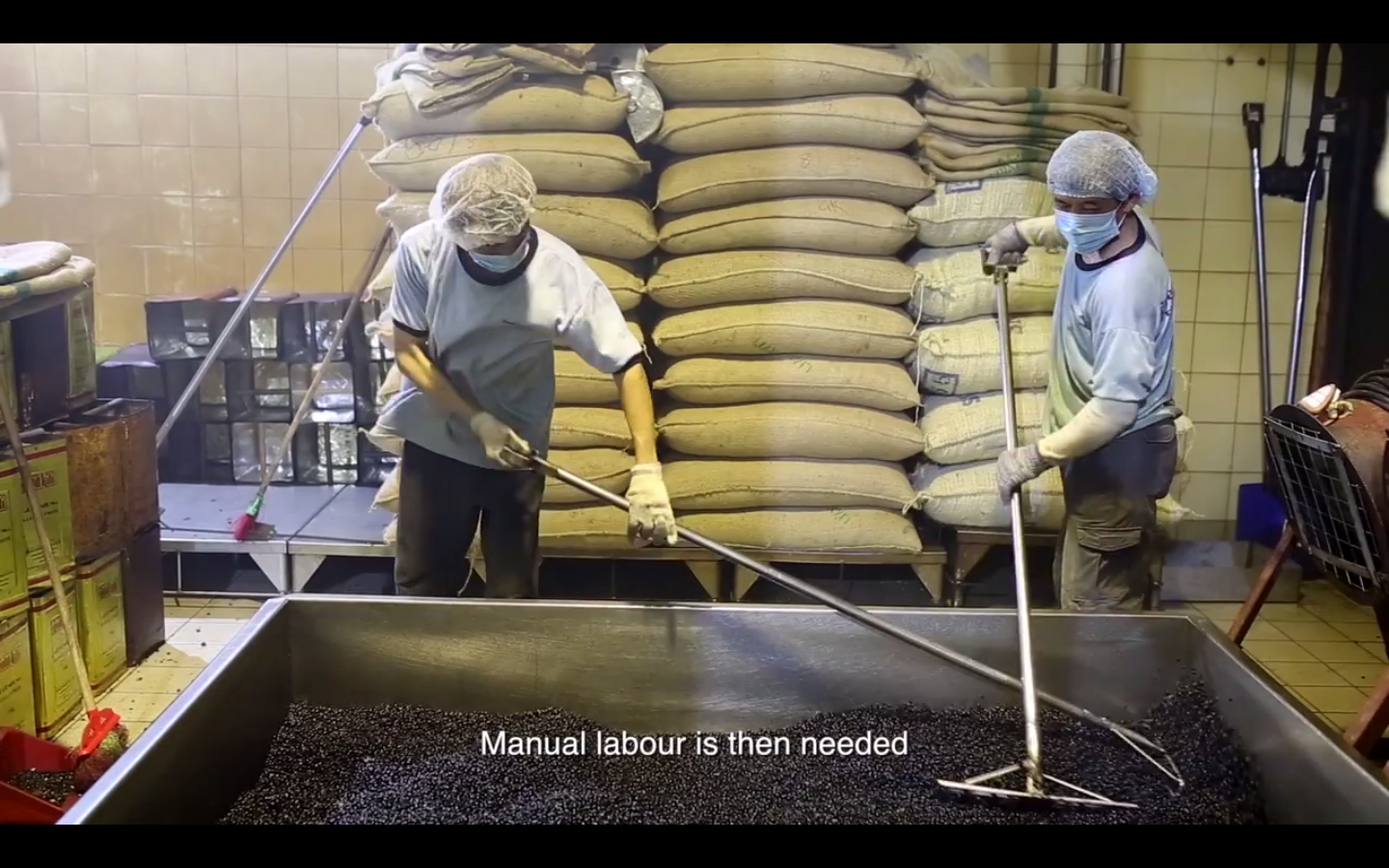 Screenshot from video
Screenshot from video
The cooled beans are then popped into gunny sacks and whisked away for grinding, where the resulting coffee powder is then sold to coffee sellers at coffee shops and hawker centres, among other places.
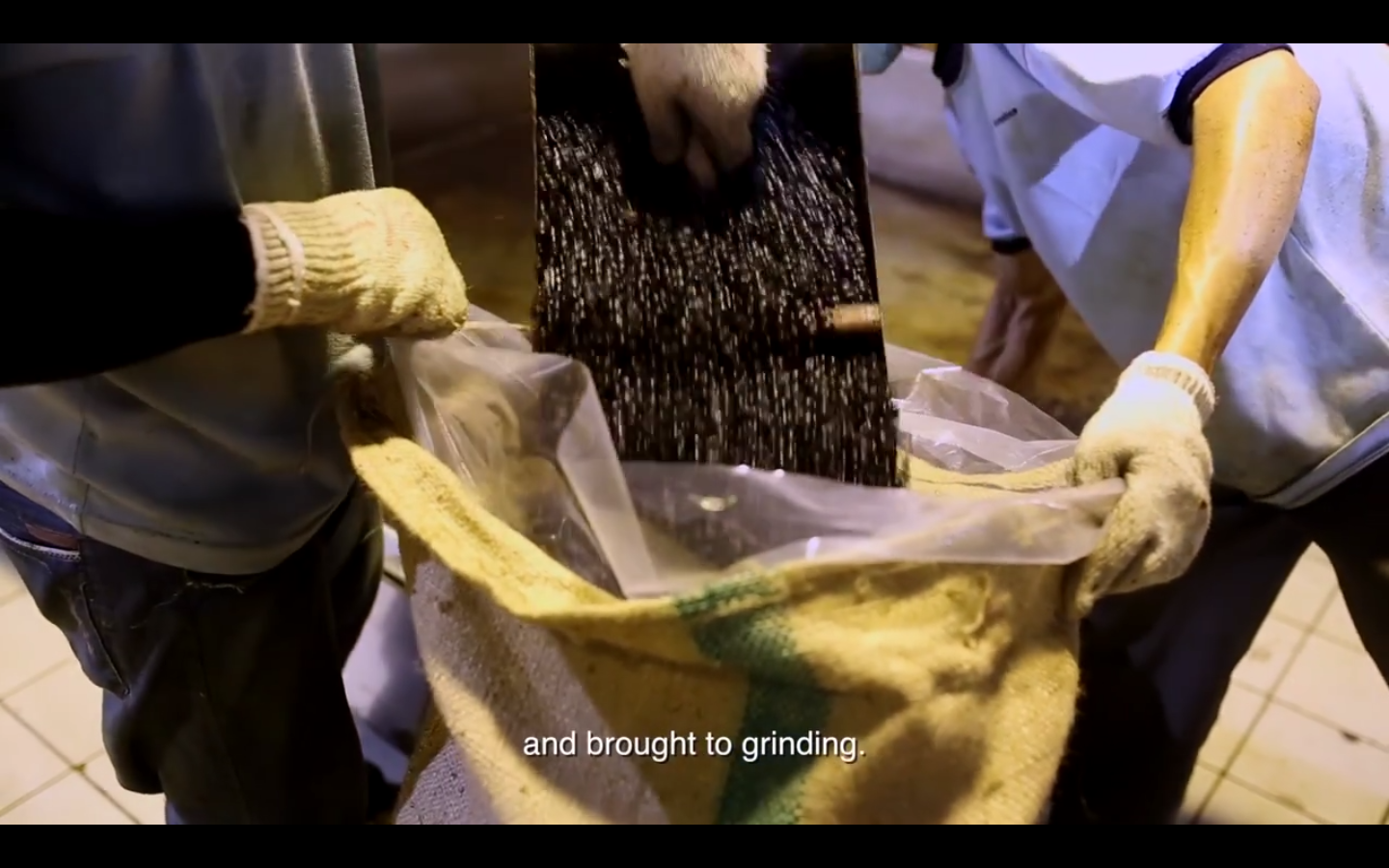 Screenshot from video
Screenshot from video
Over at the coffee shop, the coffee is brewed with the hottest of hot water, and filtered through the coffee powder placed in these trusty "socks".
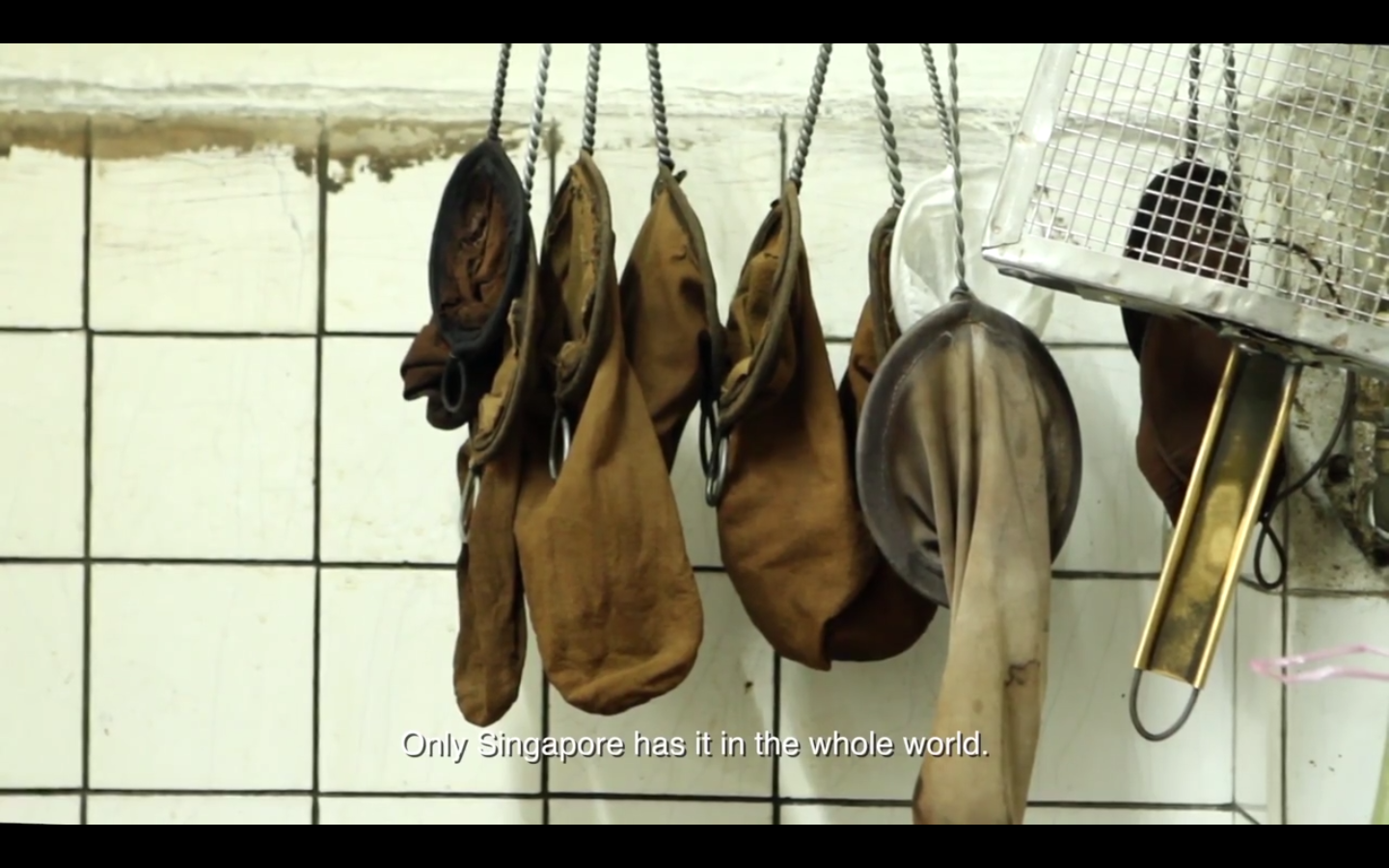 Screenshot from video
Screenshot from video
These familiar apparatus are used to keep the water searing hot:
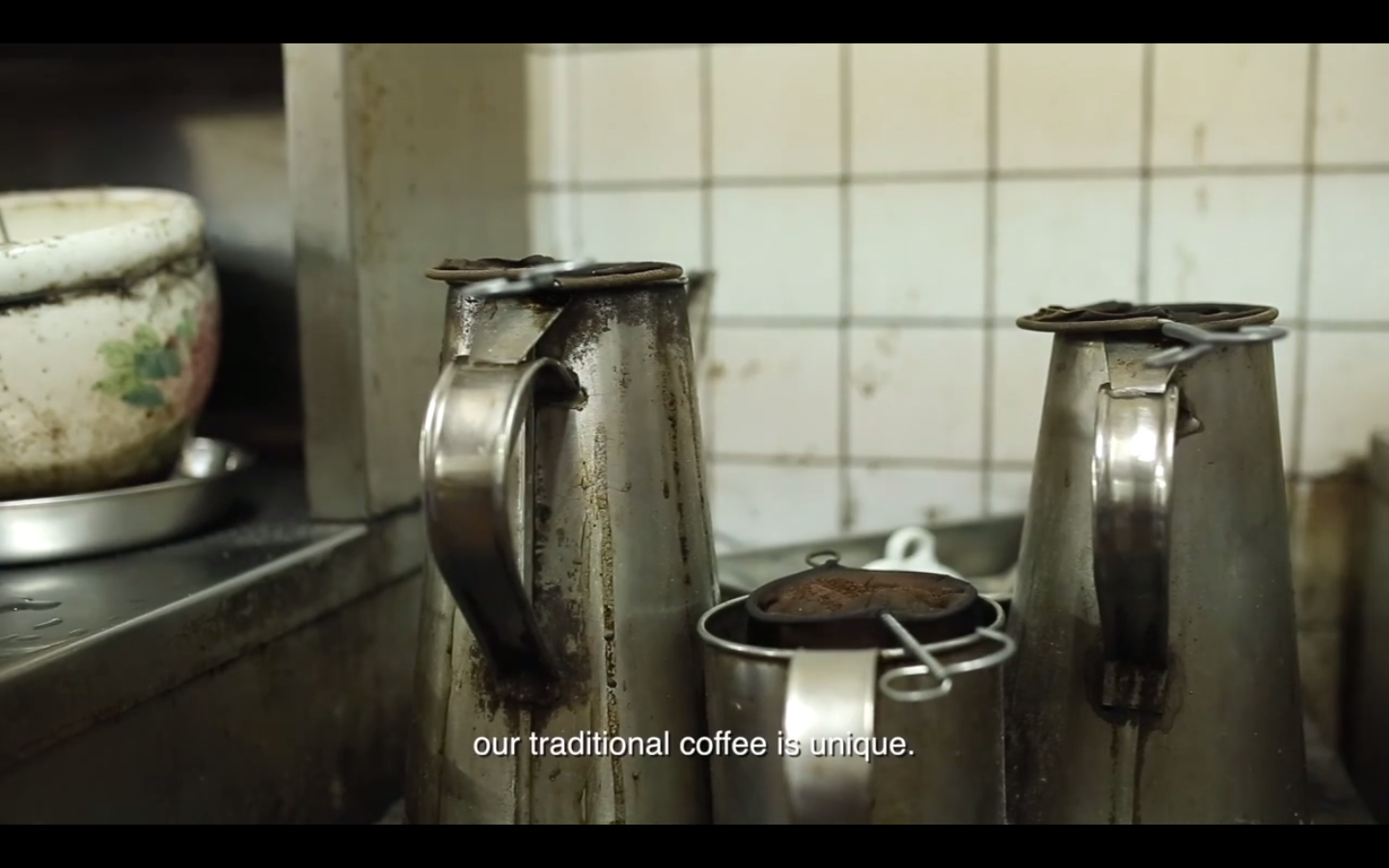 Screenshot from video
Screenshot from video
And the cup too, stresses one coffee master:
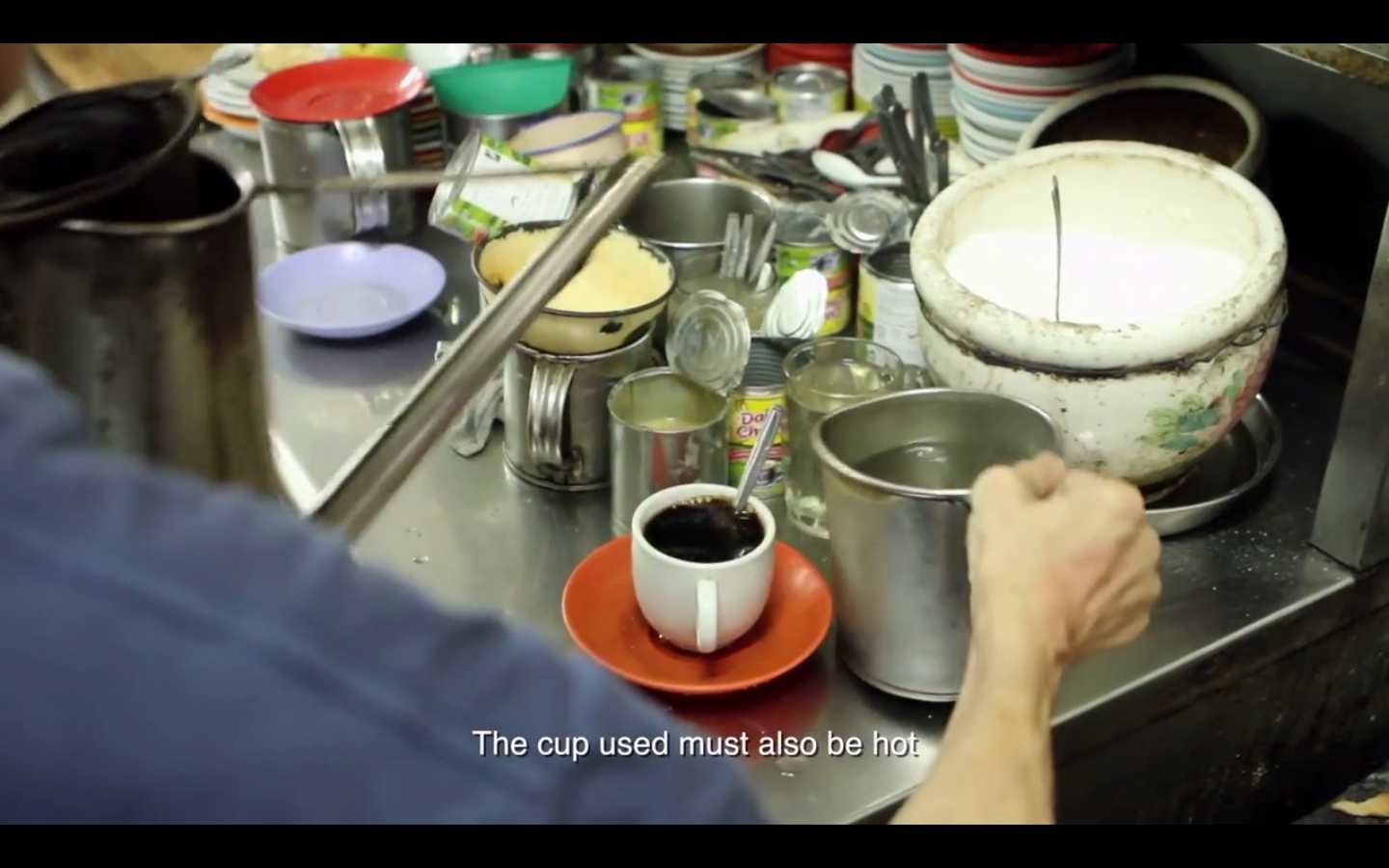 Screenshot from video
Screenshot from video
As you might have realised, this is a rather tedious and labour-intensive process that you might also have noticed involves chiefly uncles/people above the age of 45, usually.
Speaking of the issue of the future of Singapore's coffee-making industry, coffee uncles featured in the documentary say demand for traditional coffee isn't slowing down, even with the rise of overpriced gourmet coffee, courtesy of the likes of Starbucks, Coffee Bean and cafes all over.
But turnover rate among younger staff is high, with most quitting after anywhere between four months and a year and a half, especially because they seem to feel there is no future in the industry or in the business.
One coffee-powder producer said it would be possible to address the labour shortage by purchasing Italian coffee-grinding machines, which are pretty comprehensive, but the resulting products would lack the Singaporean flavour that makes our coffee so special.
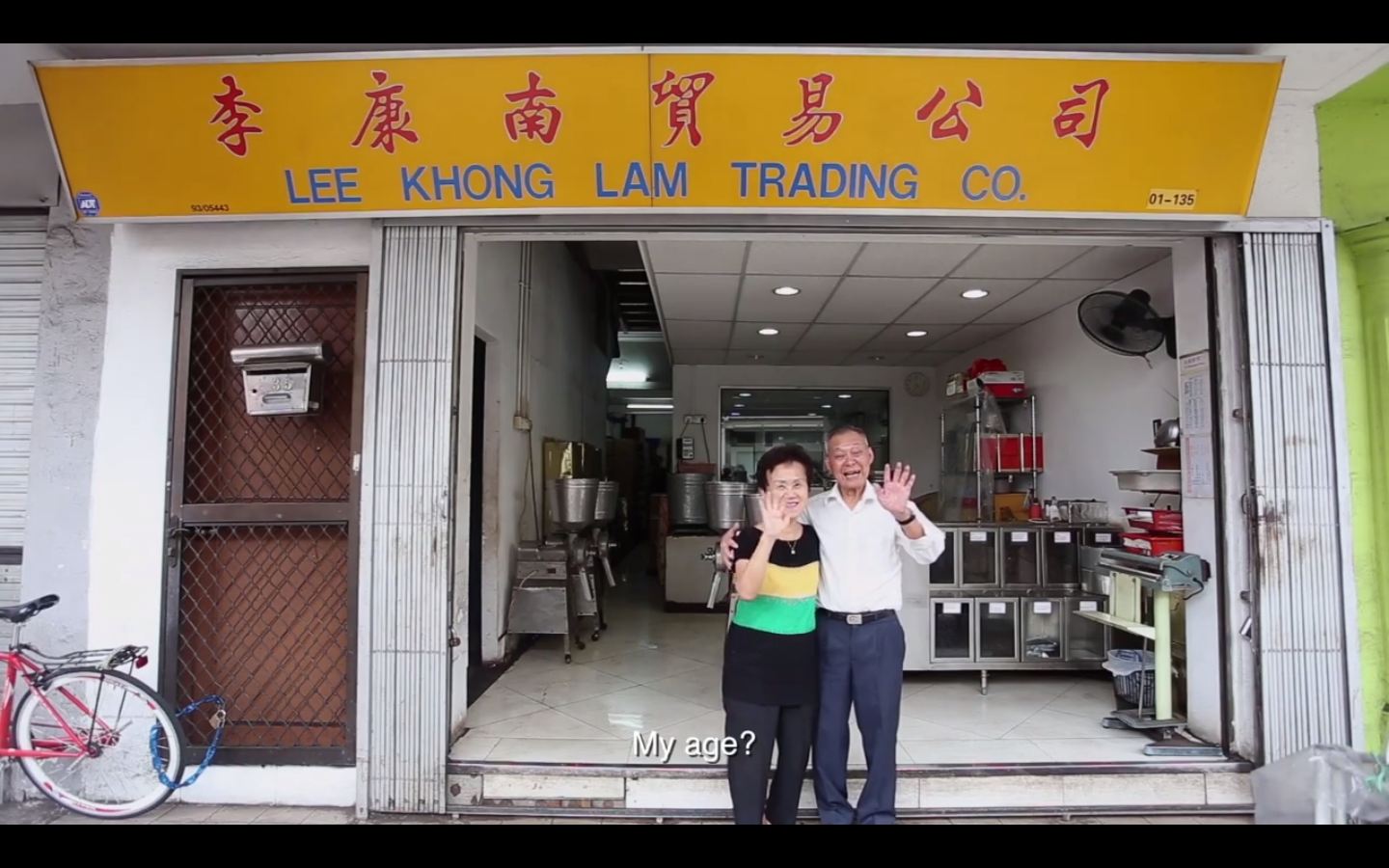 Screenshot from video
Screenshot from video
And if you're a young person contemplating entering the local coffee industry, but yet worrying there's no future to it, here's how Lee Khong Lam, owner of Lee Khong Lam Trading Co., puts it:
"Drinking coffee is the most, normal, ordinary thing to do, you cannot get sick of it. You don't get sick of eating, do you?"
Watch the whole film here:
Top image: Screenshot from video
If you like what you read, follow us on Facebook and Twitter to get the latest updates.
If you like what you read, follow us on Facebook, Instagram, Twitter and Telegram to get the latest updates.